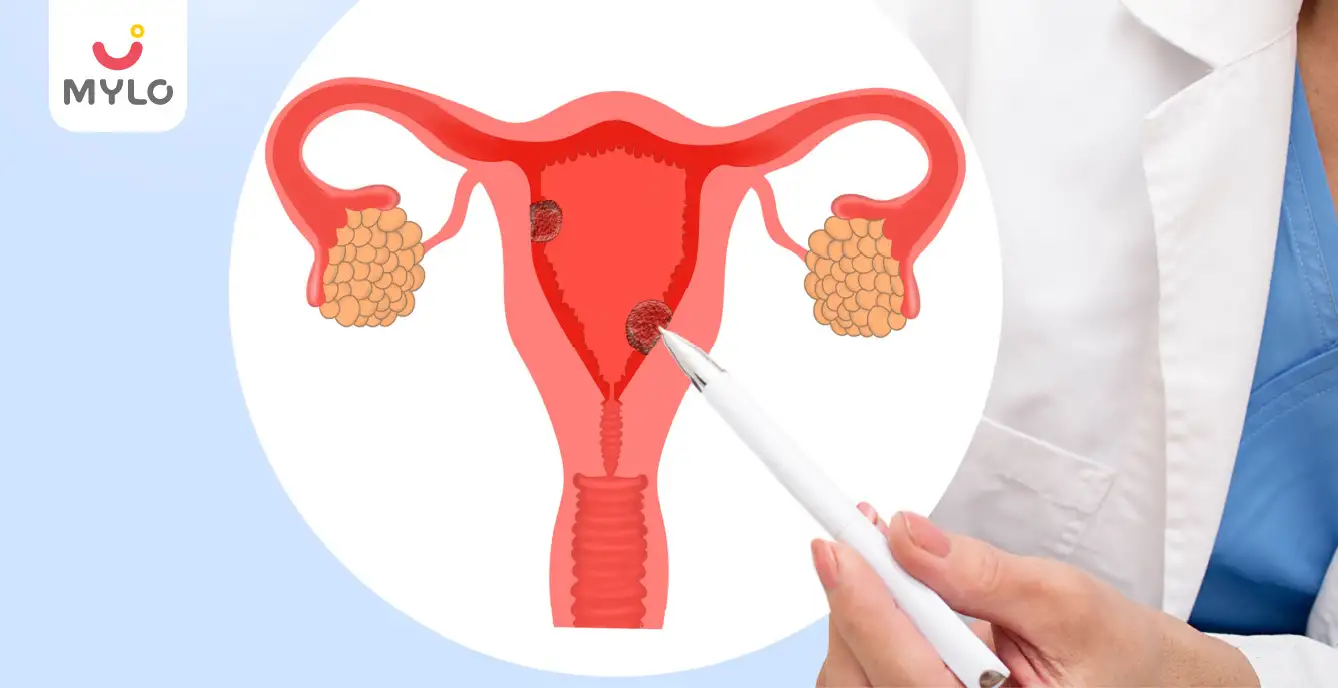Home

PCOS & PCOD

The Ultimate Guide to Supplementing with Omega 3 for PCOS
In this Article

PCOS & PCOD
The Ultimate Guide to Supplementing with Omega 3 for PCOS
Updated on 9 November 2023
Polycystic ovary syndrome (PCOS) is a common hormonal disorder that affects women of reproductive age. It is characterized by insulin resistance, hormonal imbalances, and abnormal ovulation. Omega 3, a type of essential fatty acid, has been found to be beneficial for women with PCOS. In this guide, we will explore the advantages of omega 3 for PCOS and provide tips for supplementing with omega 3.
Is Omega 3 good for PCOS?
Omega 3 is a type of essential fatty acid that is found in fish oil, flaxseed oil, and other sources. Research has shown that omega 3 can be beneficial for women with PCOS. Omega 3 has anti-inflammatory properties that can help to reduce inflammation in the body. Inflammation is a contributing factor to many of the symptoms associated with PCOS, including insulin resistance and hormonal imbalances. Omega 3 can also help to improve insulin sensitivity, which is important for women with PCOS who are at risk of developing type 2 diabetes.
What is the relation between Omega 3 and PCOS?
Studies have shown that women with PCOS have lower levels of omega 3 in their blood compared to women without PCOS. This suggests that supplementing with omega 3 may be beneficial for women with PCOS. Omega 3 can help to improve insulin sensitivity, reduce inflammation, and regulate hormonal imbalances, all of which are important factors in PCOS.
What are the Benefits of Omega 3 for PCOS?
If you’re considering supplementing with Omega 3, then here are some benefits that might help convince you:
1. Reduces inflammation
Omega 3 has anti-inflammatory properties that can help to reduce inflammation in the body. This is important for women with PCOS as inflammation is a contributing factor to many of the symptoms associated with the condition.
2. Improves insulin sensitivity
Omega 3 can help to improve insulin sensitivity, which is important for women with PCOS who are at risk of developing type 2 diabetes.
3. Regulates menstrual cycles
Omega 3 can help to regulate menstrual cycles in women with PCOS. This is because omega 3 can help to balance hormones and improve ovulation.
4. Reduces testosterone levels
Women with PCOS often have high levels of testosterone, which can lead to a range of symptoms including acne and excessive hair growth. Omega 3 can help to reduce testosterone levels in women with PCOS.
5. Reduces risk of heart disease
Women with PCOS are at an increased risk of developing heart disease. Omega 3 can help to reduce this risk by reducing inflammation and improving cholesterol levels.
6. Improves fertility
Omega 3 can improve fertility in women with PCOS by regulating menstrual cycles and improving ovulation.
7. Reduces depression and anxiety
Women with PCOS are at an increased risk of developing depression and anxiety. Omega 3 can help to reduce the symptoms of depression and anxiety in women with PCOS.
You may also like: PCOS Acne: The Ultimate Guide to Causes, Treatment and Management
Tips for Supplementing Omega 3 for PCOS
Now that we know the relationship between omega 3 and PCOS and its benefits, let us understand some tips to keep in mind while taking Omega 3 supplements for PCOS:
1. Choose the right dosage
The recommended dosage of omega 3 for women with PCOS is between 1000-2000mg per day. It is important to choose a supplement that provides the recommended dosage.
2. Choose the right type of omega 3
There are different types of omega 3, including EPA and DHA. EPA is more effective at reducing inflammation, while DHA is more effective at improving brain function. It is important to choose a supplement that contains both EPA and DHA.
3. Choose a high-quality supplement
It is important to choose a high-quality supplement that has been tested for purity and potency. Look for a supplement that has been certified by an independent third-party organization.
4. Take omega 3 with a meal
Omega 3 is best absorbed when taken with a meal that contains fat.
5. Be patient
It may take several weeks or months to see the full benefits of omega 3 for PCOS, so be patient and consistent with your supplementation.
You may also like: PCOS Self Care: How to Nurture Your Body and Mind
How to choose the right Omega 3 supplement for PCOS?
When choosing the right Omega-3 supplement for PCOS, consider the following steps:
1. Consider the source
Omega-3s can be obtained from various sources, including fish, seafood, nuts, seeds, plant oils, and fortified foods. Select a supplement that suits your dietary preferences and needs.
2. Look for high levels of EPA and DHA
EPA and DHA are the key components of Omega-3 that provide health benefits. Check the labels or websites of the supplements to ensure they contain sufficient levels of EPA and DHA.
3. Ensure purity
Fish oil can contain toxins such as heavy metals and PCBs. Look for products that provide a Certificate of Analysis and have been independently tested for purity.
4. Check for freshness
Oxidized oils can taste bad and may be harmful. Make sure the supplement is fresh and has not oxidized.
5. Choose a highly absorbed supplement
Opt for a supplement that is highly absorbed or bioavailable, meaning that your body can easily use the nutrients.
You may also like: PCOS Exercise: Your Guide to Sweating Away PCOS
Are there any side effects of Omega 3 supplements?
Omega 3 is generally safe for most people when taken in the recommended dosage. However, some people may experience minor side effects such as:
1. Fishy burps
Some individuals may experience a fishy aftertaste or burping after taking Omega-3 supplements. Freezing the capsules can help decrease these effects.
2. Upset stomach and diarrhea
In rare cases, Omega-3 supplements may cause gastrointestinal discomfort, including upset stomach and diarrhea.
3. Increased risk of bleeding
Omega-3 fatty acids have blood-thinning properties, which can increase the risk of bleeding, especially in individuals taking blood-thinning medications. It is crucial to consult with a healthcare provider before starting any new supplement, especially if taking blood-thinning medication.
4. Immune system suppression
Omega-3 supplements may have a slight suppressive effect on the immune system, although this effect is generally not significant.
Potential allergies
Some individuals may have allergies to fish or seafood, which can cause allergic reactions when consuming Omega-3 supplements derived from fish oil. It is important to check for any potential allergies before starting Omega-3 supplementation.
If you experience any of these side effects, reduce your dosage or try a different brand of supplement. It is always recommended to consult with a healthcare provider before starting any new supplement to ensure it is safe for your specific health condition and to discuss any potential side effects or interactions with medications.
The Bottomline
Omega 3 is a beneficial supplement for women with PCOS. It can help to reduce inflammation, improve insulin sensitivity, regulate menstrual cycles, reduce testosterone levels, and improve fertility. When supplementing with omega 3 for PCOS, it is important to choose a high-quality supplement that contains both EPA and DHA and has been certified by an independent third-party organization. Be patient and consistent with your supplementation, and you may begin to see the benefits.
References
1. Melo V, Silva T, Silva T, Freitas J, Sacramento J, Vazquez M, Araujo E. (2022). Omega-3 supplementation in the treatment of polycystic ovary syndrome (PCOS) - a review of clinical trials and cohort. Endocr Regul.
2. Khani B, Mardanian F, Fesharaki SJ. (2017). Omega-3 supplementation effects on polycystic ovary syndrome symptoms and metabolic syndrome. J Res Med Sci.



Written by
Anandita Sharma
Drawing on more than a decade of expertise in administration, Anandita Sharma currently serves as a content operations e
Read MoreGet baby's diet chart, and growth tips

Related Articles
Related Questions
Hello frnds..still no pain...doctor said head fix nhi hua hai..bt vagina me pain hai aur back pain bhi... anyone having same issues??

Kon kon c chije aisi hai jo pregnancy mei gas acidity jalan karti hain... Koi btayega plz bcz mujhe aksar khane ke baad hi samagh aata hai ki is chij se gas acidity jalan ho gyi hai. Please share your knowledge

I am 13 week pregnancy. Anyone having Storione-xt tablet. It better to have morning or night ???

Hlo to be moms....i hv a query...in my 9.5 wk i feel body joint pain like in ankle, knee, wrist, shoulder, toes....pain intensity is high...i cnt sleep....what should i do pls help....cn i cosult my doc.

Influenza and boostrix injection kisiko laga hai kya 8 month pregnancy me and q lagta hai ye plz reply me

RECENTLY PUBLISHED ARTICLES
our most recent articles

Exercise & Fitness
The Ultimate Guide to Safe and Effective Exercise in Periods

PCOS & PCOD
PCOS Hair Growth: Causes, Symptoms, and Effective Treatment Options

Women Specific Issues
Endometrial Hyperplasia: The Ultimate Guide to Understanding Its Causes and Treatment

Lifestyle
Lights, Camera, Baby Bump: Movies to Watch During Pregnancy

Exercise & Fitness
Squat During Pregnancy Benefits & Precautions

Common Health Problems
The Ultimate Guide to Thyroid Treatment in Ayurveda
- Ayurvedic Treatment for Acne: Holistic Healing for Clear Skin
- Gokshuradi Guggulu: Ayurveda's Solution for UTI and Kidney Support
- The Surprising Benefits of Dark Chocolate for Periods
- How to Reduce Air Pollution in Your Daily Life
- Normal Prolactin Levels to Get Pregnant: What You Need to Know
- What Causes Low HCG Levels in Early Pregnancy & How to Increase It?
- Top 10 Babymoon Destinations in India for Expecting Parents
- Understanding the Reasons & Solutions for a Baby Not Eating Food
- The Ultimate Guide on How to Delay Periods Naturally
- গর্ভাবস্থায় আলুবোখরা: উপকারিতা ও ঝুঁকি | Prunes During Pregnancy: Benefits & Risks in Bengali
- গর্ভাবস্থায় হিং | ঝুঁকি, সুবিধা এবং অন্যান্য চিকিৎসা | Hing During Pregnancy | Risks, Benefits & Other Treatments in Bengali
- স্তনের উপর সাদা দাগ: লক্ষণ, কারণ এবং চিকিৎসা | White Spots on Nipple: Causes, Symptoms, and Treatments in Bengali
- গর্ভাবস্থায় পোহা: উপকারিতা, ধরণ এবং রেসিপি | Poha During Pregnancy: Benefits, Types & Recipes in Bengali
- গর্ভাবস্থায় মাছ: উপকারিতা এবং ঝুঁকি | Fish In Pregnancy: Benefits and Risks in Bengali


AWARDS AND RECOGNITION

Mylo wins Forbes D2C Disruptor award

Mylo wins The Economic Times Promising Brands 2022
AS SEEN IN
















- Mylo Care: Effective and science-backed personal care and wellness solutions for a joyful you.
- Mylo Baby: Science-backed, gentle and effective personal care & hygiene range for your little one.
- Mylo Community: Trusted and empathetic community of 10mn+ parents and experts.
Product Categories
baby carrier | baby soap | baby wipes | stretch marks cream | baby cream | baby shampoo | baby massage oil | baby hair oil | stretch marks oil | baby body wash | baby powder | baby lotion | diaper rash cream | newborn diapers | teether | baby kajal | baby diapers | cloth diapers |




